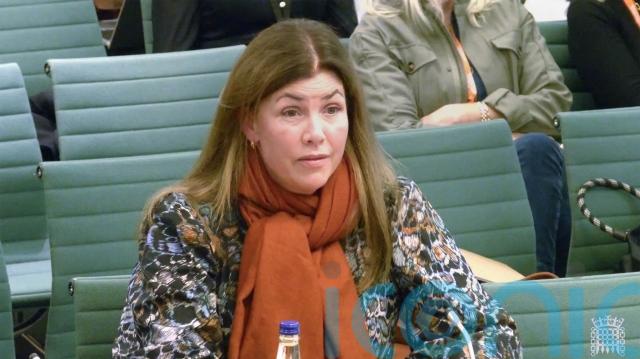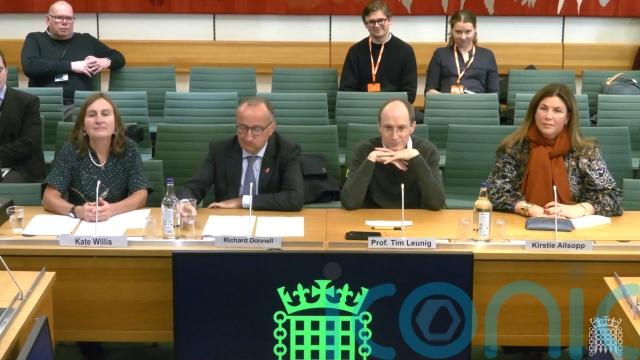
TV personality Kirstie Allsopp has told MPs she thinks stamp duty should be abolished, saying: “People should be able to move house cheaply and easily.”
Speaking at a Treasury Committee hearing, the Location, Location, Location presenter was asked if she believes stamp duty should be abolished, and responded: “I do.”
Asked if speculation about changes to stamp duty is affecting behaviour in the housing market, Allsopp said: “I’m seeing it all the time… what I see is young people buying more expensive houses really than they can afford because they know they can’t pay stamp duty twice.

“The other thing I’m seeing a lot of is people altering two and three-bed houses rather than moving, because the cost of moving is so high.
“I think we’re actually damaging our first-time buyer housing stock because of stamp duty.”
Asked if stamp duty speculation is having a pronounced impact at the moment, Allsopp said: “Yes, that is absolutely what I’m seeing, that people are in a panic about it because it has gone up and they think it could go up again. There’s a lot of speculation in the press.”
Allsopp later told the committee: “When people move, they buy things.
“They don’t buy apps, they don’t buy experiences, they buy physical items, often bought from UK retailers if not made in the UK.
“That is an important economic driver. People should be able to move house cheaply and easily.”
Stamp duty applies in England and Northern Ireland, with separate taxes in Scotland and Wales.
Allsopp told the MPs: “I think we probably need to remember why people move house. It is often as a result of difficult circumstances. Death, divorce, moving nearer a family member who’s got dementia. All of the reasons that people move house, they’re mostly not frivolous, they’re important. And a good home is good health.”
She also cautioned against any taxes which could discourage people from investing in their homes, saying: “Different people do different things. Some people buy expensive cars, expensive handbags, go on expensive holidays. Others save really hard, and do a lot of work on their houses.”
She also told the committee: “I think we have to be very careful not to see buying property as a sin. Because at the moment, it’s a sin tax. It’s like cigarettes and alcohol and first-class travel. You are actually punished for wanting to buy a more expensive property than the previous one and that is wrong. It should remain a positive, aspirational thing to want to have a better home for your family. And we should encourage it.”
Allsopp added: “We have to have a more positive attitude both to landlords and to people who want to buy properties.”

Richard Donnell, executive director at Zoopla, told the committee: “About 40% of first-time buyers looking to buy property through our website would pay stamp duty on what they’re looking to buy, and that’s up to nearly 80% of first-time buyers in London.
“It’s a tax that leans really heavily on London and the South East. I think what concerns me most, if you look at sales for over half-a-million, it’s 70% of the receipts. Sales over a million is 40% of the receipts.”
Mr Donnell said the number of homes being sold “does have a multiplier effect for the economy, so you can see it has an impact on white goods, spend, getting people to do DIY on your property, improving your property.
“In a market where people aren’t moving as often, that drives less economic impact,” he said.
Many people in southern England, he added, are looking to move out of their local area.
Professor Tim Leunig, a director at consultancy Public First, told the committee a point supporting Allsopp’s view is: “Under Help to Buy, the most common-sized property bought by first-time buyers had three bedrooms.
“That’s just plain weird, because a three-bedroom house, particularly a new three-bedroom house, is usually quite an expensive proposition.
“People are doing that because they only then have to pay stamp duty once and they only have to buy it on the first-time buyer rate.
“One of the big problems of the first-time buyer lower rate is it discourages you from buying a cheap first-time buyer property because you don’t get much benefit, and you lose the right to the benefit later.”
Subscribe or register today to discover more from DonegalLive.ie
Buy the e-paper of the Donegal Democrat, Donegal People's Press, Donegal Post and Inish Times here for instant access to Donegal's premier news titles.
Keep up with the latest news from Donegal with our daily newsletter featuring the most important stories of the day delivered to your inbox every evening at 5pm.